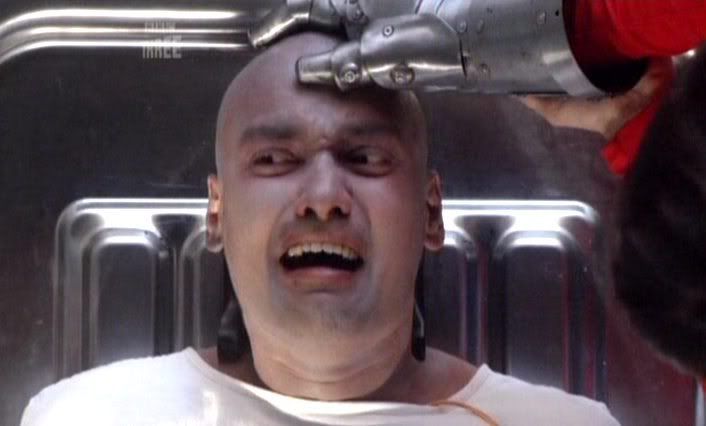General spoiler alert issued!

On Doctor Who rebound, I thought Torchwood would be the perfect spin-off show to watch next. Torchwood, as introduced in Series 2 of Doctor Who, covers the escapades and adventures of an organization created to investigate alien life and technology to “arm the human race for the future.”
While it’s sci-fi basis and format of cumulative single episode story arcs is similar, Torchwood is best not approached as a replacement. Apart from the occasional reference (one of the cleverest were the tattered “Vote Saxon” posters) as a reminder that you’re still in the same universe, there is little connection-and viewed in this particular light, Jack’s charisma is only a shadow of the Doctor’s. However, as an individual television show, I enjoyed it: it was fun to have a larger cast of recurring characters and character-specific episodes.

One of the greatest differences that I did not expect was the decidedly more mature tone of Torchwood—the themes are often darker, visually there is more gore (the cannibals were downright horrifying), and sexuality plays a much larger role. However, there is also the recurring idea of morality, so central to Doctor Who; Captain Jack is far from infallible, often questioned for his methods, and others find themselves engaging in dubious behavior, whether an affair or the ability to eavesdrop onto other’s thoughts.
Another theme was the value of life—as multiple “revived” characters attest, after life there is simply nothing: “darkness.” One character goes as far as plotting their own resurrection in order to try to escape, contrasted against Jack who feels “cursed” with the fact that he can never die.

Even despite the overarching themes, it sometimes felt as though there was a lack of continuity in the back stories and struggles of a character—present one episode, and seemingly gone the next.
My favourite episode was easily “Random Shoes” about a ghost who, alongside the Torchwood members, unravels the cause of his death. It was much more cheerful and optimistic than the other episodes, and about the only one where death was not treated as a dreadful descent into oblivion. It stood out in the season as a bit overly sentimental, refreshing amidst all the moral ambiguity and confusion.

The conclusion to the series was, in one word, disappointing. A giant horned demon rampaging across the city was unimaginative and, compared to the subtlety and emotionally charged nature of the previous episodes, felt crude and hasty. The final scene/extended montage was painful, and against all odds, even less original–an overused technique to create a tension filled end.
The ending is vital to a series, and unfortunately it simply left me with too poor of a last impression to be able to recall the series successes over its weaknesses.
Pros
- complex, developed characters
- thematic ambiguity
- intriguing episode premises
Cons
- discontinuous feel to character’s personal struggles
- an anticlimactic climax

